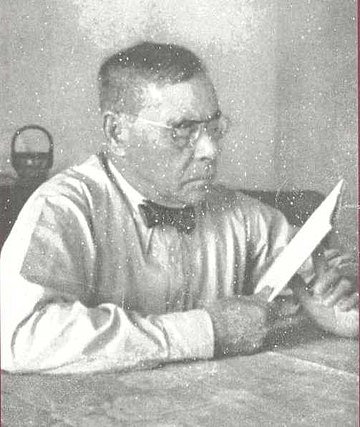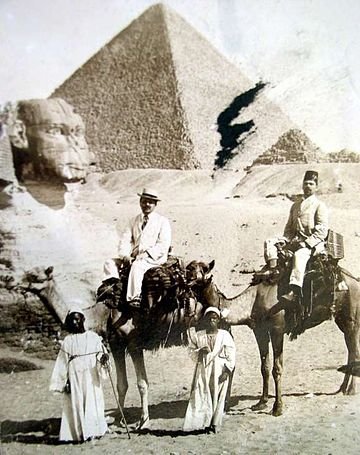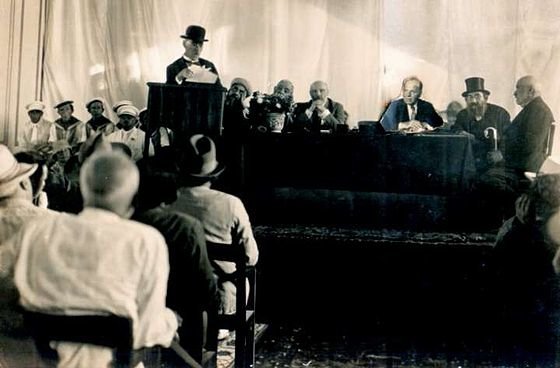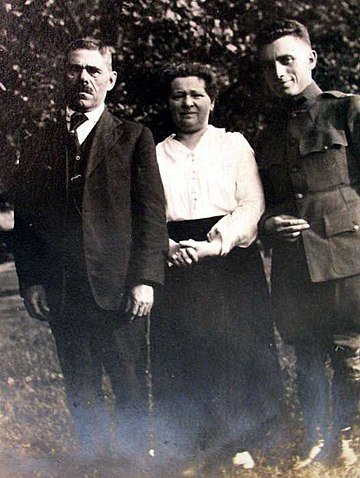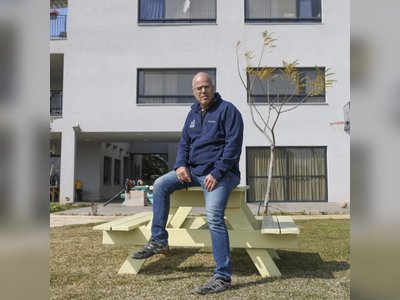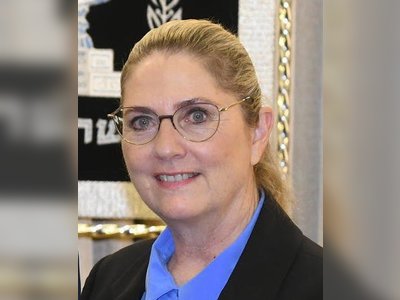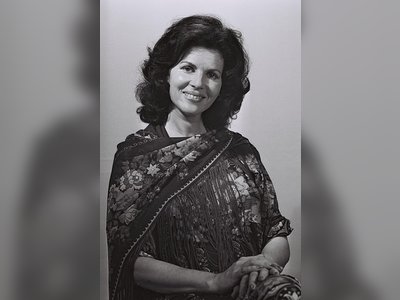מורשת גדולי האומה
בזכותם קיים
beta
Samuel S. Bloom
Samuel S. Bloom, also known as Shmuel (Sam) Shimon Bloom, was born on December 25, 1860, in Vilkmergė, Lithuania. He was a Jewish public figure, Zionist philanthropist, industrialist, and inventor. He later became one of the prominent leaders of the American Jewish Congress and contributed significantly to the development of Tel Aviv.
Bloom was raised in an Orthodox Jewish environment, receiving his education in traditional Jewish studies in Lithuania under the guidance of his father, Rabbi Nachum Bloom, who was the head of a yeshiva in Vilkmergė. After completing his education, he worked in the goldsmith trade. In 1882, after the death of his father and a period of service in the Russian Army, Bloom emigrated to the United States, where he began to explore various business ventures.
Upon arriving in the United States, Bloom settled in Philadelphia, where he established a variety of enterprises related to the jewelry industry. He succeeded in amassing significant wealth and even received recognition for his work from then-U.S. President Woodrow Wilson. His success allowed him to become involved in philanthropic and Zionist activities.
Samuel S. Bloom played a prominent role in the American Zionist movement. He was a consistent delegate to the Zionist Congress, starting from the Second Zionist Congress in 1898. During World War I, he served as the chairman of the Jewish Aid Committee in Philadelphia, supporting Jewish refugees and those affected by the war.
Bloom was a key figure in the American Jewish Congress and, after the split within the American Zionist movement, he aligned himself with the faction led by Justice Louis Brandeis.
In 1909, Bloom visited the land of Israel for the first time, accompanied by a group of American Zionists. During this trip, he met with prominent Zionist leaders, including Professor Boris Schatz, who tried to persuade him to transfer his successful jewelry business to the Land of Israel. Motivated by Schatz's efforts, Bloom returned to Israel in 1914 to explore the feasibility of relocating his jewelry business. After successful experiments with water suitability for jewelry production in Jerusalem, he decided to establish a jewelry factory in Palestine.
Bloom faced a dilemma regarding the location of the factory, with both Haifa and Tel Aviv as potential options. In 1924, after meeting with Meir Dizengoff, the mayor of Tel Aviv, he was convinced to establish the factory in Tel Aviv.
In 1926, Bloom officially founded the first jewelry manufacturing company in Tel Aviv, known as "The American Society for the Settlement of Jewelry in Palestine, Ltd." The decision to establish this factory was significant because it marked an instance of a Jewish individual from the United States investing in industrial business ventures in the Land of Israel.
In addition to his business ventures, Samuel S. Bloom acquired land throughout Israel and planted orchards, contributing to agricultural development. He supported the establishment of the first mental health hospital in Tel Aviv and made substantial donations to build a home for abandoned children in the city, as well as the Hebrew Reali School in Haifa and Tel Aviv's Great Synagogue.
Samuel S. Bloom passed away in his home on Meltzer Street in Tel Aviv in the autumn of 1941. He was buried in the old cemetery on Trumpeldor Street. Bloom's philanthropic contributions and influence played a significant role in shaping Tel Aviv's cultural institutions and enriching the city's cultural life.
He left behind a legacy of philanthropy, business acumen, and support for Zionist causes, which continue to be remembered and celebrated today. His family included two sons, Nathan and Leon, who carried on his business legacy, and four daughters, all of whom made their contributions to various fields, including music, literature, and public service.
Entrepreneurship and Success
Upon arriving in the United States, Bloom settled in Philadelphia, where he established a variety of enterprises related to the jewelry industry. He succeeded in amassing significant wealth and even received recognition for his work from then-U.S. President Woodrow Wilson. His success allowed him to become involved in philanthropic and Zionist activities.
Zionist Involvement
Samuel S. Bloom played a prominent role in the American Zionist movement. He was a consistent delegate to the Zionist Congress, starting from the Second Zionist Congress in 1898. During World War I, he served as the chairman of the Jewish Aid Committee in Philadelphia, supporting Jewish refugees and those affected by the war.
Bloom was a key figure in the American Jewish Congress and, after the split within the American Zionist movement, he aligned himself with the faction led by Justice Louis Brandeis.
Settlement in Israel
In 1909, Bloom visited the land of Israel for the first time, accompanied by a group of American Zionists. During this trip, he met with prominent Zionist leaders, including Professor Boris Schatz, who tried to persuade him to transfer his successful jewelry business to the Land of Israel. Motivated by Schatz's efforts, Bloom returned to Israel in 1914 to explore the feasibility of relocating his jewelry business. After successful experiments with water suitability for jewelry production in Jerusalem, he decided to establish a jewelry factory in Palestine.
Bloom faced a dilemma regarding the location of the factory, with both Haifa and Tel Aviv as potential options. In 1924, after meeting with Meir Dizengoff, the mayor of Tel Aviv, he was convinced to establish the factory in Tel Aviv.
In 1926, Bloom officially founded the first jewelry manufacturing company in Tel Aviv, known as "The American Society for the Settlement of Jewelry in Palestine, Ltd." The decision to establish this factory was significant because it marked an instance of a Jewish individual from the United States investing in industrial business ventures in the Land of Israel.
In addition to his business ventures, Samuel S. Bloom acquired land throughout Israel and planted orchards, contributing to agricultural development. He supported the establishment of the first mental health hospital in Tel Aviv and made substantial donations to build a home for abandoned children in the city, as well as the Hebrew Reali School in Haifa and Tel Aviv's Great Synagogue.
Legacy and Passing
Samuel S. Bloom passed away in his home on Meltzer Street in Tel Aviv in the autumn of 1941. He was buried in the old cemetery on Trumpeldor Street. Bloom's philanthropic contributions and influence played a significant role in shaping Tel Aviv's cultural institutions and enriching the city's cultural life.
He left behind a legacy of philanthropy, business acumen, and support for Zionist causes, which continue to be remembered and celebrated today. His family included two sons, Nathan and Leon, who carried on his business legacy, and four daughters, all of whom made their contributions to various fields, including music, literature, and public service.
- שמואל בלוםhe.wikipedia.org
